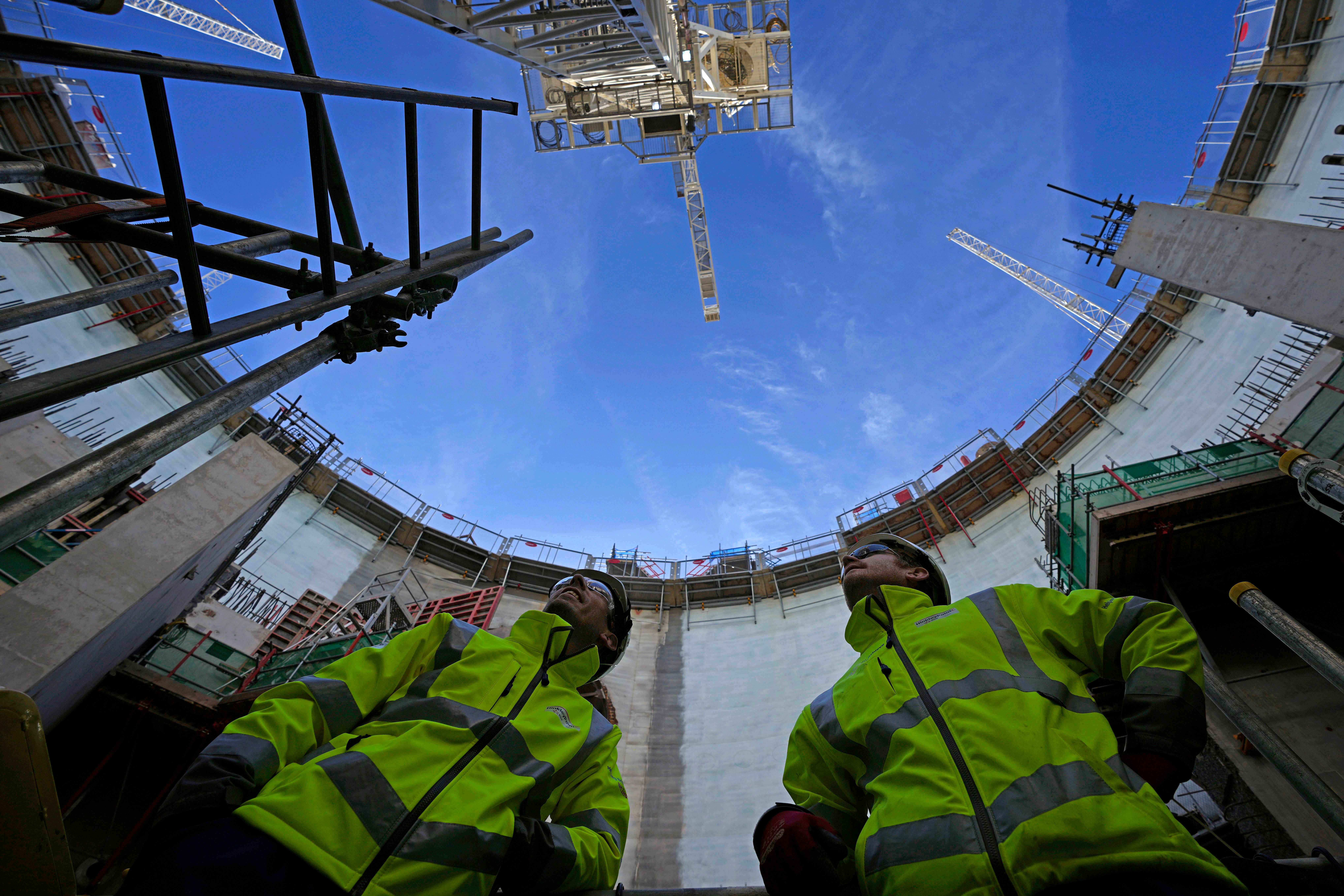UK's flagship nuclear plant could cost up to $59 billion, developer says
A major nuclear plant that Britain’s government hopes will generate affordable, low-carbon energy could cost up to 46 billion pounds, or $59 billion, and the completion date could be delayed to after 2029

A major nuclear plant that Britain's government hopes will generate affordable, low-carbon energy could cost up to 46 billion pounds ($59 billion), and the completion date could be delayed to after 2029, the firm developing it said Wednesday.
The U.K. government says nuclear projects like the Hinkley Point C plant are a key part of its plans to ensure greater energy independence and achieve its “net zero” by 2050 strategy.
But a re-evaluation showed that the final bill for the plant, being built in Somerset in southwest England, could soar to up to 34 billion pounds in 2015 prices — or 43 billion pounds in current value, French energy giant EDF said.
Officials had previously said that the Hinkley plant would start producing electricity in 2027, but the completion date has now been pushed back to 2029 at the earliest.
“Like other infrastructure projects, we have found civil construction slower than we hoped and faced inflation, labor and material shortages — on top of Covid and Brexit disruption," said Stuart Crooks, managing director of Hinkley Point C.
EDF and the U.K. government have said the plant will become a major source of decarbonized electricity supply for the U.K., generating enough to power 6 million homes and providing some 7% of the country's electricity.
The Conservative government is investing heavily in nuclear power, with ambitions to generate up to a quarter of the country's projected electricity demand by 2050.
The move has divided opinion and drawn criticism from green groups.
Some experts say nuclear energy will be needed to help nations wean off fossil fuels, but there are concerns about the substantial cost and timescale of building large nuclear reactors as well as worries over safety and nuclear waste. Other clean energy, such as wind farms, can be built and come online much faster.
Critics, including the U.K. government's own climate advisers, say the U.K.'s support for new domestic oil and gas production and its slow pace in transitioning to green energy were undermining its “net zero” pledges.
Authorities have promised to reduce emissions by 68% by 2030, eventually reaching net-zero — or releasing only as much greenhouse gas as can be absorbed again through natural or technological means — by 2050.
Bookmark popover
Removed from bookmarks